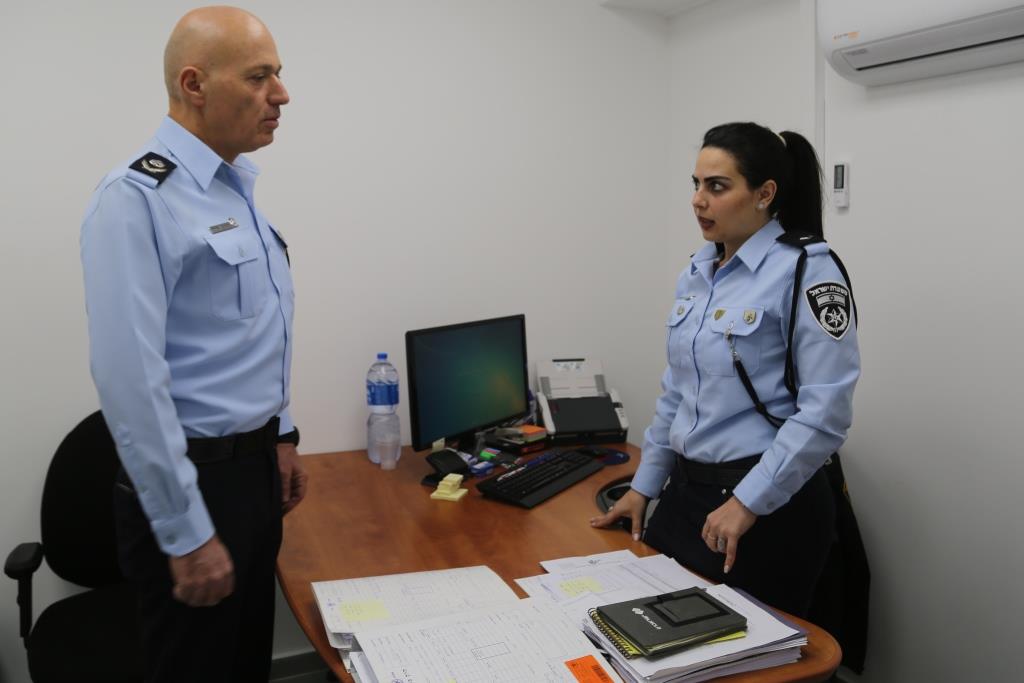
About a year ago, the Jerusalem District Commander presented a request: to review police accessibility to the ultra-Orthodox sector.
The Jerusalem District has over 900,000 residents, and includes the largest concentration of Haredi Jews in the country.
Following this, a team consisting of rabbis, researchers, and commanders was established, with the goal of bringing something new to the concept. The team's recommendations were: to establish a service center for the ultra-Orthodox, which would be run entirely from a Haredi perspective.
Within this framework, seven police officers from the ultra-Orthodox sector were selected, and a female ultra-Orthodox investigator was recruited - and they began a two-stage training process. On the one hand, they learned police operations and the response provided to ordinary citizens, which they were required to adapt to the ultra-Orthodox sector, and on the other hand, they brought in feedback from the ultra-Orthodox sector, and the emphases for receiving police service from the sector - with the aim of creating the right response, one that takes into account the nature and character of the ultra-Orthodox public.
The police, under the command of Lt. Col. Yigal Yaakov, commander of theHaredi Service Center, They speak Yiddish and other languages, which are typical of the Haredi regions, such as English, Russian, and more.
Today, the 'Urdu Service Center', the first of its kind in Israel, was inaugurated, with the participation of the Jerusalem District Commander, Major General Doron Yedid. The center operates under the Zion Region Command, which controls most of the Haredi neighborhoods in Jerusalem.
"The police and the investigator are only dealing with issues that are troubling the Haredi sector," a police source tells Haredim 10. "They will not deal with demonstrations nor will they go there, they will not engage in recruitment or any persuasion. They will meet with the public, map out the needs, go to homes to collect complaints, learn about the hardships and provide solutions."
How is their work done?
"Each such police officer is responsible for a neighborhood and their job is to get to know the people and their needs - and provide a response. Also to collect complaints without having to physically arrive."
"Just in the last few days, one of them received information about businesses that had been broken into and the owners did not complain, out of unwillingness and distrust of the police. The Haredi police officer met with them, investigated, managed to locate a suspect - and in conjunction with intelligence, arrested the burglar. This is just one example..."
According to him, "There is increasing cooperation with the rabbis, with everything being kept under high secrecy and discretion."
Does everyone speak Yiddish?
"The policeman in the most ultra-Orthodox neighborhood speaks Yiddish. The others speak English, because there is a neighborhood that speaks English and also Russian."
The police note that the police officers move around on foot and visit the public with the aim of assisting in any way possible. Experience during the establishment phase of the police force indicates that this is a successful activity model, which creates a great deal of trust between the various communities and the figure of the police officer who lives with them and is in their area every day, in order to assist.
The main goal, the police say, is to encourage the Haredi public to share with the police issues that affect them, with an emphasis on criminal offenses. Avoiding reporting them to the police could lead to forbidden phenomena that even Haredi society in all its forms condemns.
The police note that in the short time the center has been in existence, complaints have already been filed and processed - and in some cases, indictments have even been filed, which has led to the removal of a suspect from the community. "Without full cooperation, while implementing the model we created, these offenses may not have been discovered."